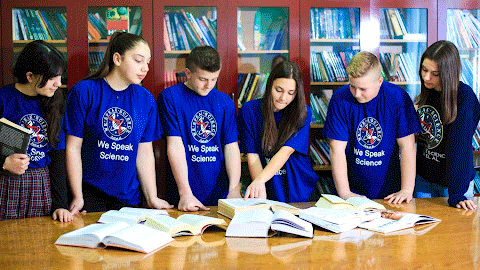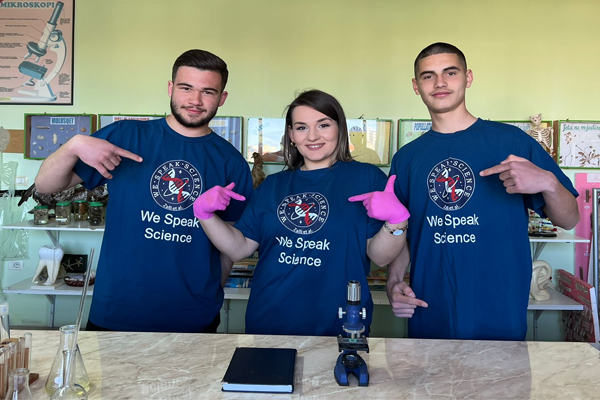A new free programme to help young people from disadvantaged backgrounds pursue academic careers in science, technology, engineering and maths (STEM) has been launched on International Education Day today.
The free global STEM programme has been launched by Dr Dentia Zalli, former refugee and founder of London-based not-for profit We Speak Science, in partnership with insendi, a Study Group company, with the aim of making STEM education accessible to all. Registration is now open to students worldwide and the programmes will officially commence on 27 February.
Students will learn the fundamentals of cell biology, space biology and data science, gaining practical knowledge to solve authentic, real-case difficulties the world faces in the 21st century. The three-week course, which includes discussion forums, e-learning and live classes, will be delivered through digital learning platform, insendi, giving students access to the learning material at any time and from any location.
The We Speak Science STEM programme includes lectures from volunteer contributors Professor Vladimir Pletser, who trained as an astronaut with NASA, Ajit Jaokar, the Artificial Intelligence Course Director at the University of Oxford, David Mackay, a pilot with Virgin Atlantic, and We Speak Science founder, Dr Detina Zalli.
EMPOWERING YOUNG PEOPLE FROM DISADVANTAGED BACKGROUNDS
We Speak Science is open to all but aims to empower young people from low socio-economic backgrounds through STEM education. Approximately 10,000 students have already benefited from We Speak Science courses, 50% of whom come from disadvantaged backgrounds. A recent soft launch saw 28 students from various backgrounds enrol, including 12 from a Ukrainian school.
“It has been inspiring to see thousands of students who we’ve already worked with grow and achieve excellence,” commented We Speak Science’s Dr Detina Zalli. “I understand how hard it is to access quality education having personal experience of escaping civil war in Albania. We Speak Science will continue to provide educational services to those in need, on a global basis for the first time, thanks to our new partnership with insendi.”
The non-profit organisation founded in 2014 aims to inspire students to pursue a career in STEM, particularly young people from low-socioeconomic backgrounds. In 2022, We Speak Science partnered with digital learning platform insendi, a Study Group company, to achieve a better world through education by reaching more students.

SUPPORT FOR BUDDING SCIENTISTS
“Our mission is to create the best online and blended experiences for our partners and their learners. We’re launching this digital programme on International Day of Education to support more budding scientists into an academic future in STEM,” shared James Connor, Managing Director of insendi.
Ian Crichton, CEO of Study Group believes that global education is “one of the most powerful tools we have to unlock solutions for today’s biggest global challenges and needs to touch as many people as possible”. “With the launch of this programme, young people from around the world can connect, study STEM and be given the support and inspiration to have a positive impact in the world,” he added.
STEM SUCCESS STORY
Commenting on the programme, a 23-year-old former We Speak Science student, Albin Shaqiri said: “Having been born into a Kosovar family seeking refuge from a terrible conflict in our homeland only a few months after it concluded, I found my opportunities and privileges very limited growing up. We didn’t know anyone, nor did we have any connections that could give us some advantage. The nearby schools were poorly run, which left me with a sense of self-doubt, while family illness compounded the issue.
“Despite my hard work, I had all but given up hope for a medical career, but with a last spark of determination enrolled at the Queen Mary University of London to study Biomedical Sciences. Although passionate professors made my time there easier, I still needed to learn how to study effectively. Days before my final exam, my mother also passed away, which affected my preparation and performance even more.
“Soon afterwards, I discovered We Speak Science and Dr Detina Zalli reignited my passion for medicine. She assisted with every assignment I struggled with and helped me prepare for medical school, including UCAT and GAMSAT. Today I’m a full-time medical student at the St George’s University of London, which is a true testament to We Speak Science and Dr Zalli’s passion for disadvantaged students.”
Students with an interested in STEM can find out more and enrol here.






































